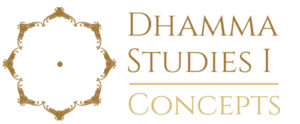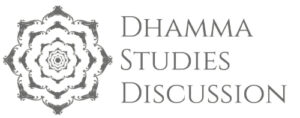4) Modern Commentary
- Hiri
- Ajahn Thanissaro “The Road to Nirvana is Paved with Skillful Intentions”
“As the Buddha states, feelings of guilt can’t undo a past error, and they can deprive the mind of the strength it needs to keep from repeating old mistakes. This is why he recommends an emotion different from guilt — shame — although his use of the word implies something totally unlike the sense of unworthiness we often associate with the term. Remember that both the Buddha and Rahula were members of the noble warrior class, a class with a strong sense of its own honor and dignity. And notice that the Buddha tells Rahula to see his past mistakes, not himself, as shameful. This implies that it’s beneath Rahula’s dignity to act in ways that are less than honorable. The fact that he can see his actions as shameful is a sign of his honor — and is also a sign that he’ll be able not to repeat them. This sense of honor is what underlies a mature, healthy, and productive sense of shame.”
- Sayagi U Chit Tin “Two Guardians ot the World”
“Having a sense of hiri means that a person abhors evil and shrinks from doing wrong actions. It is subjective in origin and its characteristic is respectful obedience. Ashin Buddhaghosa gives the illustration of two sets of four causes for the arising of a sense of hiri. The first four are considering our (1) birth, (2) age, (3) heroism, and (4) wide experience. We should say to ourselves whenever we are tempted to do an evil action: (1) ‘This is not worthy of a person of (good) birth; it is the type of action done by inferior people.’ (2) “This is the way children act; it is not worthy of a mature person like me.’ (3) ‘An evil action of this sort is only for those who are weak; a person who is strong and courageous like me should not do this.’ (4) ‘An evil action like this is only done by blind fools, not by wise people like me. I have gained wisdom, I have wide experience, I should not do this.” The second group of four includes: refraining from doing evil out of consideration of (1) our high birth (as above), (2) the dignity of our Teacher, (3) the greatness of our inheritance, and (4) the honour of our companions.”
- Ottappa
- Bhikkhu Bodhi “The Guardians of the World”
“The Buddha points to two mental qualities as the underlying safeguards of morality, thus as the protectors of both the individual and society as a whole. These two qualities are called in Pali hiri and ottappa. Hiri is an innate sense of shame over moral transgression; ottappa is moral dread, fear of the results of wrongdoing. The Buddha calls these two states the bright guardians of the world (sukka lokapala). He gives them this designation because as long as these two states prevail in people’s hearts the moral standards of the world remain intact, while when their influence wanes the human world falls into unabashed promiscuity and violence, becoming almost indistinguishable from the animal realm (Itiv. 42).”
- Sayagi U Chit Tin “Two Guardians ot the World”
“The fear of blame has an external cause. Its characteristic is viewing a fault with timidity and fear. It is by nature a sense of dread, meaning that we dread the possibility of being reborn in the lowest planes of suffering. We are afraid of being blamed by any of the four assemblies: the Bhikkhu-Sangha, the Bhikkhuni-Sangha, an assembly of laymen, or an assembly of laywomen. We also realize how big the world is and that there are bhikkhus and laypeople who have developed the supernormal powers. These people can read other people’s minds. There are also devas who can read people’s thoughts, and because we do not want these highly developed people or these Devas to see us indulging in evil, unprofitable thoughts, we strive to develop pure thoughts and actions. The fear of blame has four causes: (1) accusing oneself, (2) being accused by others, (3) (fear of) punishment, (4) (fear of) an evil destiny. In other words, we will be afraid of doing something that we know we will reproach ourselves for later, or something that others will criticize. We will avoid actions that we might be punished for in this life, or actions that will lead to future lives of suffering.”
Review (Click text for answer)
Suggestion – The sense of dignity, and disinclination to act in ways that are less than honorable and the ability to see one’s unwholesome actions as shameful, that is, a “sense of honor – is what underlies a mature, healthy, and productive sense of shame.” “Considering our (1) birth, (2) age, (3) heroism, and (4) wide experience, (5) our high birth (as above), (6) the dignity of our Teacher, (7) the greatness of our inheritance, and (8) the honour of our companions.” “Ottappa is moral dread, fear of the results of wrongdoing.” “The fear of blame has four causes: (1) accusing oneself, (2) being accused by others, (3) (fear of) punishment, (4) (fear of) an evil destiny.”
|



